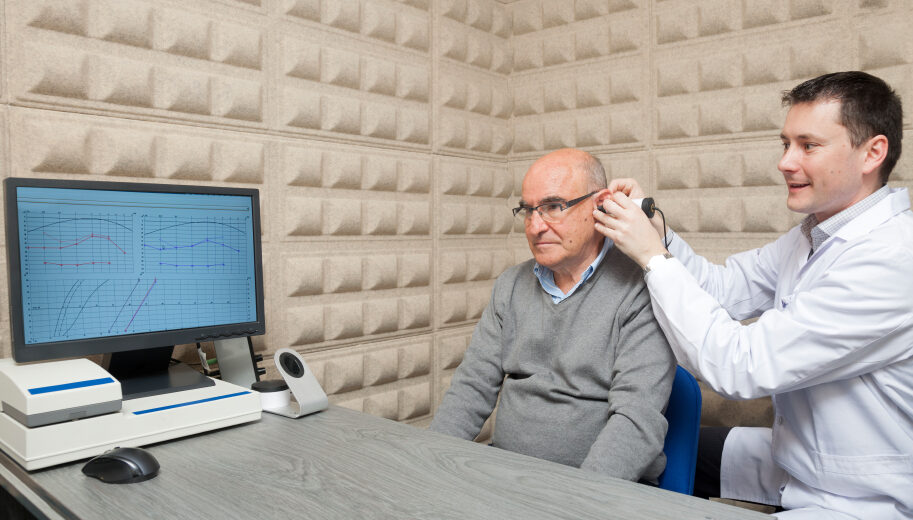Preventing Hearing Loss to Maintain Independence

One of the most common health conditions that occurs as we age is hearing loss. Nearly one third of adults over the age 65 live with some type of it. After age 75, the number climbs to almost 50%. While everyone agrees it can be difficult to live with hearing loss, many adults don’t understand just how much hearing loss can impact daily life.
One area of concern is cognitive health. Research from The Johns Hopkins University shows adults living with hearing loss experience a 30 to 40% faster cognitive decline than those without hearing problems.
Scientists believe when sound is lost or decreased, the brain has to work harder to understand what is going on around it. Connections in the brain reorganize themselves to try to help with increased “workload.” The result is a loss of cognitive abilities.
This is why protecting your hearing is an important part of maintaining your independence.
The Causes of Hearing Loss
Seniors may be unaware of what constitutes hearing loss and what can be done to prevent it. Hearing impairment ranges from a mild loss of hearing to an annoying ringing in the ears to a total hearing loss that may need the use of hearing aids.
Some types of hearing loss are the result of an injury to the ear while others are caused by aging and genetics.
- Sensorineural Hearing Loss: This form of hearing loss is most often associated with aging. It typically causes a slow decline in hearing. One ear may be worse than the other. Heredity is the leading cause. High blood pressure, prolonged exposure to loud noises, and infection are other common causes. Because it causes damage to the inner ear and auditory nerve, it is generally not reversible.
- Conductive Hearing Loss: This form of hearing loss occurs when a blockage prevents sound waves from reaching the inner ear. It can be the result of a punctured ear drum or from a buildup of wax or fluid in the ear. Fortunately, medical interventions can typically reverse this type of hearing loss.
Older adults may experience a combination of these two forms of hearing loss. When that happens, it is referred to as Mixed Hearing Loss.
How to Protect a Senior’s Hearing
If you are a senior or if you are the adult child of one, taking steps to prevent hearing loss can also help to protect cognitive health and independence.
- Limit exposure to loud noises whenever possible.
- Wear noise cancelling headphones when operating loud machinery, such as a snow blower or lawn mower.
- Watch the volume on the television and stereo. Prolonged exposure to a loud volume on either one can cause hearing loss.
- Limit the amount of time you wear headphones/ear buds and the volume on it. If others can hear through your headphones, they may be loud enough to cause hearing loss.
- Stop smoking. Most people aren’t aware that tobacco use increases their risk for hearing loss.
- Talk with your primary care physician to see what they recommend to prevent earwax build-up. He or she can evaluate you or your senior for this condition and irrigate the ear if necessary.
- Check to see if any of the medications you or your aging loved one take are known to cause hearing loss. If you find one does, talk with the prescribing physician to see if there is another option.
Our final tip is to have a yearly hearing exam by a qualified audiologist. They may be able to spot potential issues early and intervene before a small problem becomes a big one.
For the latest news and research on healthy aging, we invite you to follow the Era Living blog.
Related Posts

Podcast: A Day in the Life at Era Living – Resident Diane Miller

Podcast: Advocating for Retirees in Senior Living

